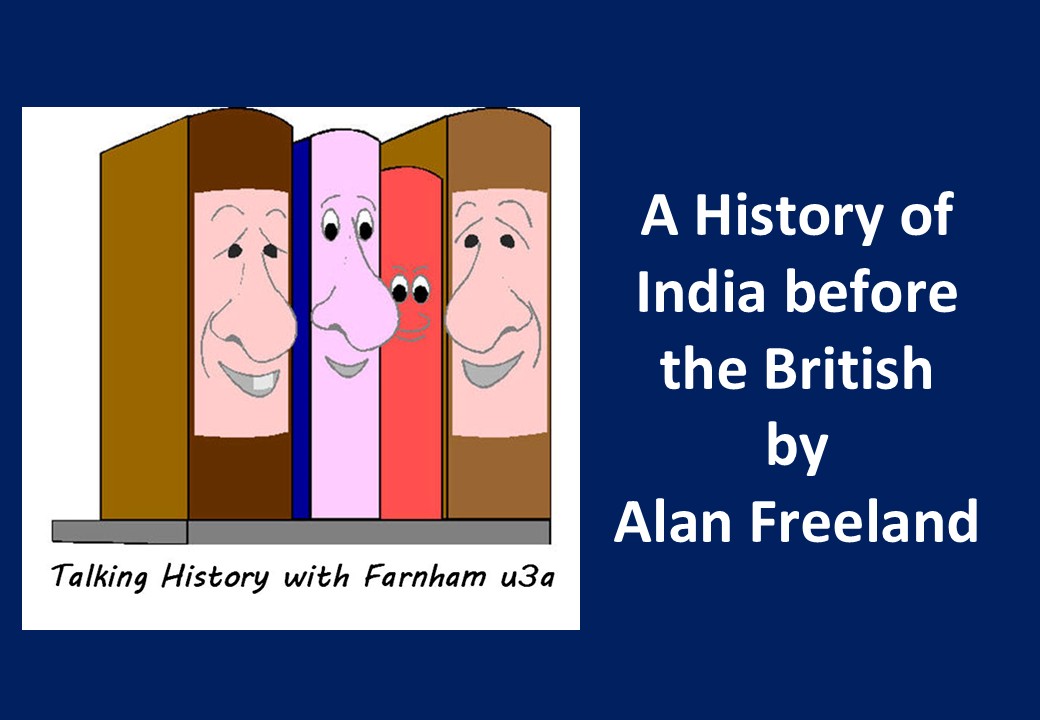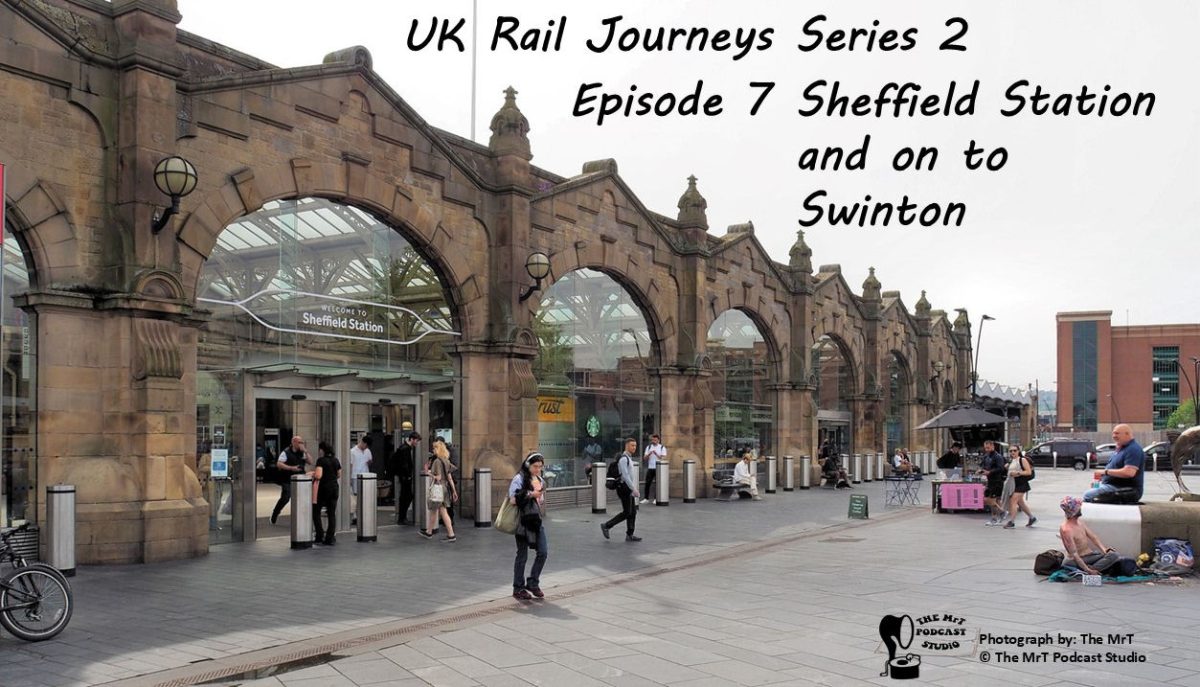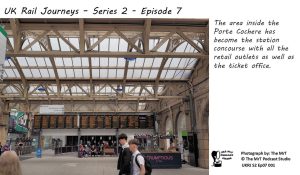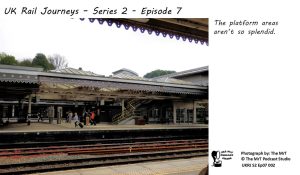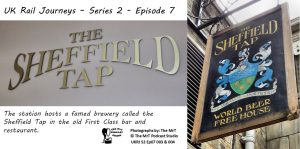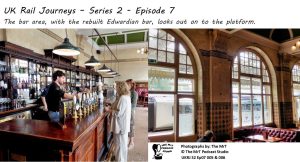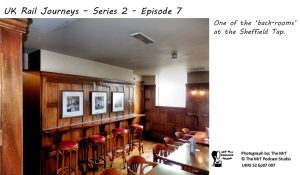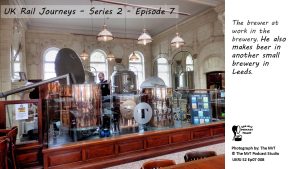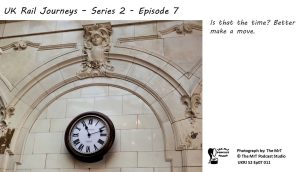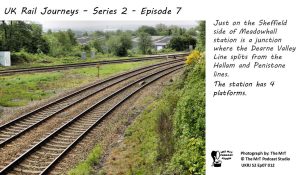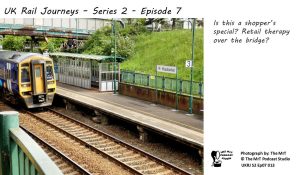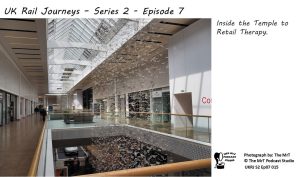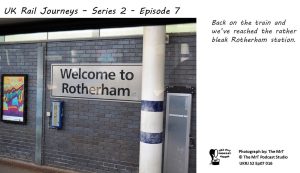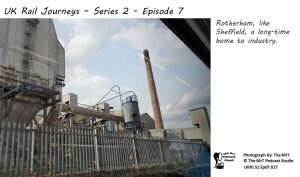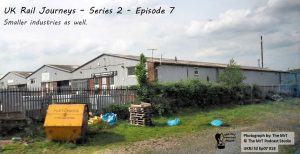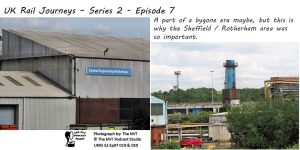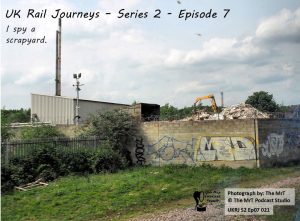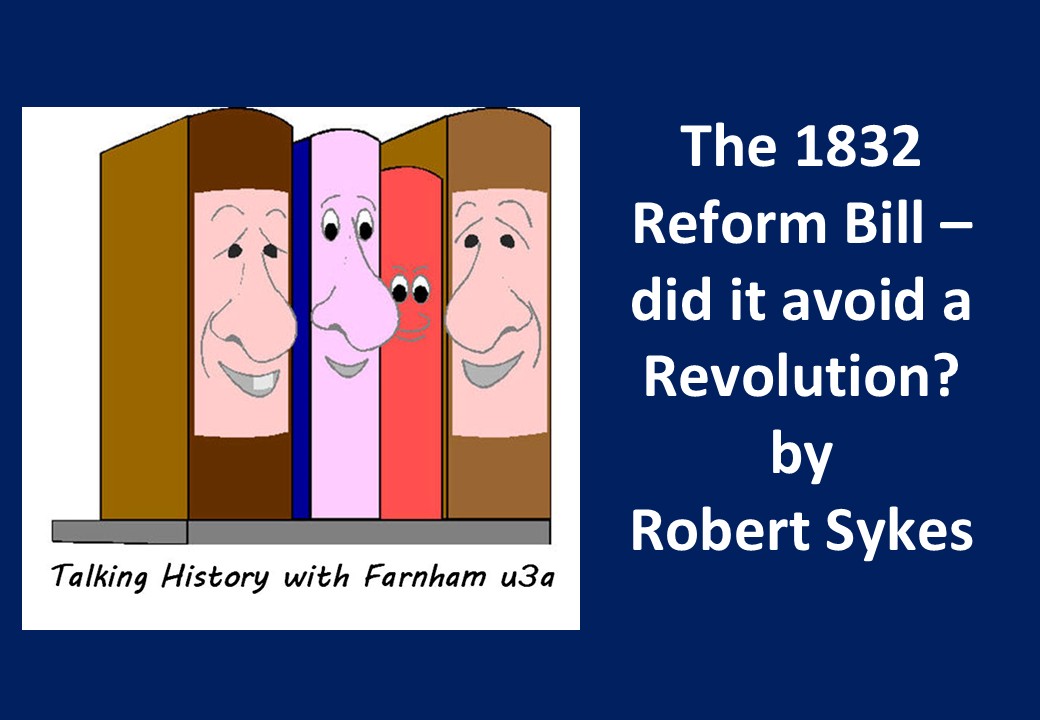Podcast: Play in new window | Download (Duration: 1:14:17 — 68.0MB)
Season 2024 – Talk 08 – A History of India before the British
In ‘A History of India before the British‘ Alan Freeland tells us that in the next few of years India’s likely to become the world’s third largest economy. To benefit from this we’ll need to understand India a lot more than we do today as we are very ignorant of our history in India.
Size:
The talk focuses on India, Pakistan, and Bangladesh. Alan uses the word India when referring to the three countries that are referred to as South Asia. Roughly speaking, if you take Russia out of Europe, then Europe and South Asia are about the same physical size, but the population is three times that of Europe.
It’s the size of India’s population that has always been its greatest strength and asset.
Buddhism:
Although Buddhism starts in India, it is no longer dominant, apart from in Sri Lanka. It is one of India’s cultural exports to those countries who today have a significant Buddhist population.
Culture and Philosophy:
The section on the origins of the Indian culture looks at the Indus Valley civilisation and the Vedic period. This is a time critical in forming the Indian culture and philosophy. The philosophy lives on today.
For a millennium and a half, from about 250 BCE to 1280, India confidently exports its diverse civilisation. It creates a vast body of ideas where its influence is predominant. The rest of Asia willingly receives this mass transfer of Indian soft power, art, religions, technology, astronomy, music, dance, literature, mathematics and mythology.
Written history:
The first manuscripts, recording personal history, date from the arrival of the Muslims. Prior to this historians mostly have to rely on inscriptions, on temples, for example.
Indian history can be characterised by a multitude of independent kingdoms and empires with occasionally interruptions by short-lived large empires. The exact opposite of China.
Listen to Alan tell us the full story of religions, castes, empires, the coming of the Europeans and intrigue.
About this podcast:
Unfortunately many of the images used in the original presentation are subject to copyright and therefore cannot be published alongside this podcast.
This is an edited recording of a talk given to the Farnham u3a World History: Ancient, Medieval and Modern Group.
This podcast is also available through Amazon Music, Apple Podcasts, Castbox, Deezer, Podchaser, Spotify, Stitcher , Vurbl , You Tube and others.
AKM Music licenses Media Magazine for use with this talk.
© The MrT Podcast Studio and the Farnham u3a World History: Ancient, Medieval and Modern Group 2018 – 2025

